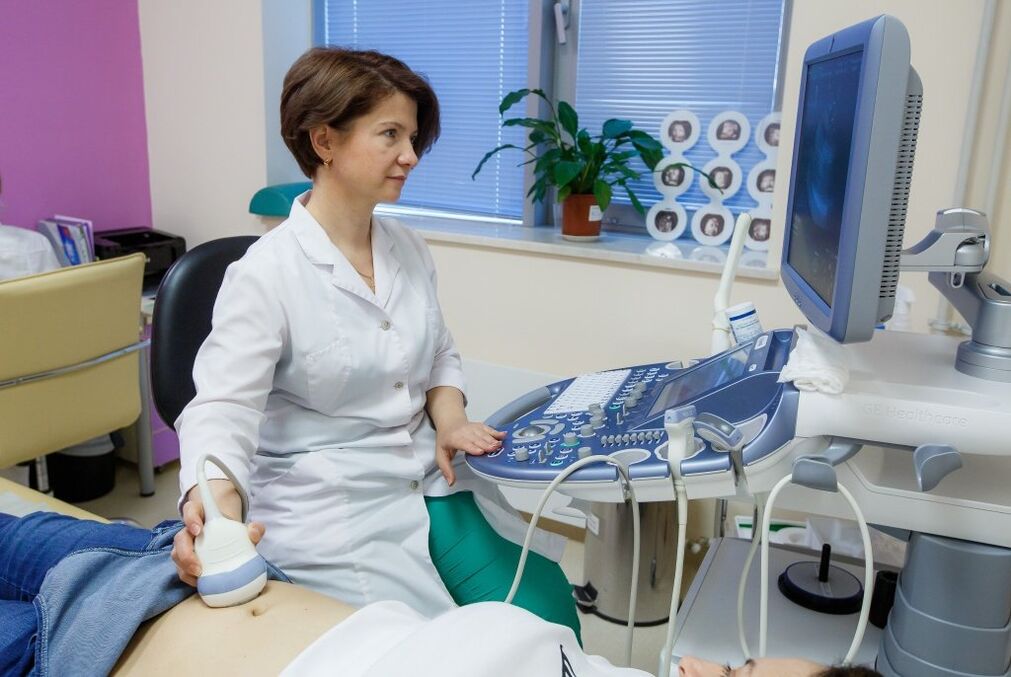Female prostatitis is not a joke, but a common name for inflammation of the vestibular glands. These glands are also called Skene glands, and their inflammation-dermatitis-shows the same symptoms as male prostatitis. What are the characteristics and harms of this disease?
Can women suffer from prostatitis?

The insidious part of pathology is that it is difficult to detect by doctors, and it is rare.
Prostatitis in women does occur, but this disease is called dermatitis. The inflamed gland in this pathology is located just below the urethra and is composed of sensitive tissue.
Skene’s glands are thought to be the basic prostate that formed in the embryo before the genitals appeared. In short, Skene’s gland is a blank, which develops into a mature prostate in a male fetus, and is still in its infancy in a female fetus.
Interestingly, these glands can produce a specific secretion, the composition of which is the same as the secretion of the male prostate. In addition, PSA antigen is the most important tumor marker and can be found in this fluid.
interesting!The jet orgasm of some women is the result of the activity of the Skene glands.
Dermatitis is rare. The problem is that the diagnosis of female prostatitis is difficult and often misdiagnosed, so there is no accurate statistics on the prevalence of this disease.
Reasons for Skinite
Most women don't even know that there are these glands near the urethra, but when they become inflamed, they will have acute symptoms that are reminiscent of signs of male prostatitis.
Dermatitis is most commonly caused by glandular infections. The main reasons for the development of the disease:
- Urethral injury;
- Lack of hygiene;
- Gland infections are caused by the spread of infections of other diseases of the reproductive organs.
In most cases, dermatitis is caused by opportunistic microorganisms that reside in women. They can pass through the urine or enter the glands from the vagina during urination. Under normal circumstances, these microorganisms do not cause inflammation, but when Skene's glands or urethra are damaged, female prostatitis occurs. This is due to the decline in local immunity.
Dermatitis may be allergic. The use of unqualified private hygiene products can cause allergic reactions and decreased local immunity, thereby increasing the risk of infection of the glands.
Another cause of dermatitis in women is trauma to the urethra caused by surgery or rough sex. When sand passes through the urethra, it may also damage the opening of the urethra due to urolithiasis.
Women's "prostatitis" is related to irregular sex life. Frequent changes of sexual partners and ignorance of barrier contraception can increase the risk of genitourinary infections.
One factor that increases the risk of this disease is the general decline in immunity. Dermatitis may be related to recent serious infectious diseases, hypothermia, and deterioration of chronic diseases.
Symptoms of the disease

With pathology, the whole body will feel constant weakness and "weakness".
After finding out whether a woman has prostatitis, you should know how dermatitis manifests. This disease is called "female prostatitis" mainly because its symptoms are similar to men's prostate inflammation. When discarded, the symptoms are as follows:
- Frequent urination;
- Small urination;
- Pain and pain in the urethra when using the toilet;
- Pain during sexual intercourse;
- Increased body temperature;
- Spasms in the bladder area;
- General malaise and decreased physical strength.
Dermatitis is similar to female cystitis in many ways. With this disease, you will feel urinary constantly, but this need cannot be fully satisfied. A small amount of urine will be excreted, accompanied by severe discomfort. Even when using the bathroom, the feeling of full bladder still exists.
You can distinguish dermatitis from other genitourinary diseases with similar symptoms by the presence of pain during sex.
Skinite does not have strong heat, but body temperature can rise to 37. 5-38 degrees.
Why is female prostatitis dangerous?
After understanding the particularity of this disease, patients will ask whether this prostatitis is dangerous for women. This disease can cause dangerous complications, so prompt diagnosis and treatment are required.
Among the possible complications of dermatitis:
- Gland abscess;
- Cystic tumors;
- Secondary infertility;
- Small pelvic adhesions;
- Deformation of the area where the inflamed gland is located;
- The infection spreads to other organs in the small pelvis.
The disease is contagious and can be caused by purulent bacteria. In severe cases, inflammation can develop into glandular abscesses, accompanied by severe symptoms, requiring surgical treatment. As sepsis (blood poisoning) develops, independent breakthrough of abscesses is potentially dangerous.
The infection can spread through the blood to all organs of the small pelvis. There is also a risk that the causative agent will spread upward and subsequently cause kidney infection. In addition, due to widespread infections, women can infect their partners through unprotected intercourse. In men, bacterial urethritis can develop into prostatitis.
diagnosis

Perform ultrasound diagnosis to ensure that there are no other diseases.
After finding out whether a woman has prostatitis and what signs and symptoms can be used to suspect dermatitis, it is recommended not to self-medicate, but to seek medical help immediately.
The main problem with dermatitis is complicated diagnosis. Due to the specific location of the glands, their inflammation is accompanied by inflammation of the bladder or urethral mucosa, so wrong diagnosis and wrong treatment are often given.
Skene's glands are located in hard-to-reach places, so a full inspection cannot be performed on them. In this regard, diagnosis is made by excluding other diseases with similar symptoms. Required exams:
- Ultrasound of the bladder to rule out cystitis;
- Ultrasound examination of the uterus and appendages to rule out inflammation;
- Cervical smear;
- Cervical bacterial culture;
- General and biochemical urinalysis;
- Urethral smear.
After excluding other diseases, the treatment of dermatitis is prescribed. Usually the most informative diagnostic method is urinalysis, which can detect pathogenic microorganisms.
Treatment characteristics
Conservative treatment is carried out through peeling. Treatment includes taking the following types of drugs:
- Antibiotics to clear the infection;
- Anti-inflammatory drugs used in urology;
- Antispasmodic to relieve pain;
- Immunomodulator.
Usually, broad-spectrum antibiotics or antibacterial drugs used to treat cystitis are prescribed. Since it is usually impossible to accurately determine the pathogen of the disease, the doctor may prescribe several drugs in this group at the same time. The third-generation cephalosporin has proven its effect.
One day after antibiotic treatment begins, the acute symptoms will subside. However, it is important to take the medication during a course of treatment, the duration of which is set by the doctor according to individual circumstances.
In order to eliminate pain, it is recommended to use antispasmodic drugs. Simple analgesics are not effective because the pain is related to spasms of the urethra and bladder.
In addition, herbal anti-inflammatory drugs are prescribed for the treatment of cystitis and kidney disease. These drugs can reduce the inflammatory process, normalize the urination process and promote the overall health of various urinary tract diseases.
Need immunomodulators. They use two drugs to prevent genitourinary diseases and use enhancers such as echinacea extract.
Precaution
After figuring out how to cure dermatitis, you should pay attention to important precautions. This disease is similar to cystitis-once you get sick, the chance of recurrence still exists for many years. To prevent this, you must:
- Pay attention to personal hygiene;
- Use barrier methods of contraception;
- Have a permanent sexual partner;
- Strengthen immunity.
When the first worrying symptoms appear, you must immediately make an appointment with a gynecologist and urologist. Self-medication of dermatitis is dangerous for chronic inflammation.

























